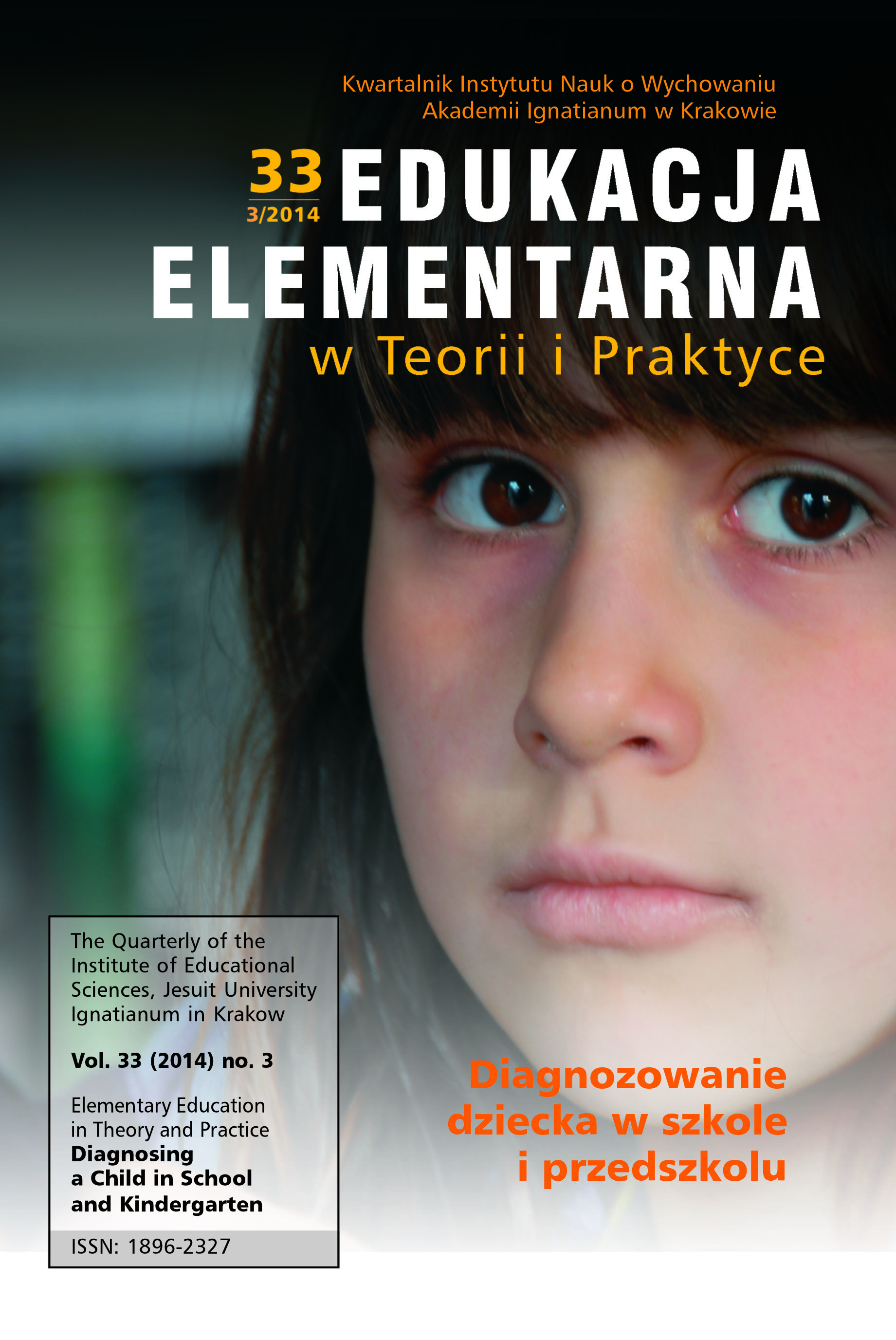Gotowość szkolna dzieci 5- i 6-letnich w zakresie kompetencji matematycznych – analiza porównawcza
School Readiness of Children Aged Five and Six with Respect to Mathematical Competence: a Comparative Analysis
Author(s): Katarzyna SzewczukSubject(s): Social Sciences, Education
Published by: Uniwersytet Ignatianum w Krakowie
Keywords: school readiness; school maturity; preschool child; mathematical competence
Summary/Abstract: The debate about lowering the obligatory age for commencing schooling has been going on in Poland now for a number of years. The Ministry of Education argues that children do not need to be rescued from school, but rather sent there as a way to make best use of their optimum period of development. Further arguments in favour of an earlier start to learning invoke concerns relating to equal opportunities in education and the need for access to better infrastructure where learning, sports and information are all concerned. On the other hand, parents, teachers, and psychologists tend to adopt a rather different point of view on this. They note the serious deficiencies in the preparedness of schools with respect to legal, human and organizational resources, as well as the concerns among teachers and others about such issues as the adequacy of daycare provision, adjustments relating to the period of school holidays, play areas, and so on. In the context of the situation described above, the diagnostic assessment of school readiness amongst children is of particular importance. It serves to highlight certain possibilities for the child while establishing their overall suitability, but will also reveal their limitations and shortcomings. Its ultimate goal is to develop an individual plan for working with the child in question, aimed at ensuring for them and others a relatively balanced and equal start in school in all areas. The article presents the results of tests carried out as part of the diagnostic assessment of school readiness in the area of mathematical competence. The main problem here was formulated as a question: what is the level of school readiness of children aged five and six attending the Nursery School No. 1 in Rabka–Zdrój? The results obtained during the research indicate that six-year-old children in most cases have already achieved a high level of school readiness as regards the skills needed for learning mathematics in the first grade. On the other hand, it was found that younger preschoolers (five-yearolds) are insufficiently prepared for schooling: the educational success offive-year-olds thus depends on an intensive process of stimulating numeracy, involving setting precisely gauged mathematical tasks. These diagnostic assessments were only conducted once, making it impossible to show the differences occurring in the development of the thinking of children over the course of a year of preschool education. However, they do document the state of children’s development at a given time, presenting the extent of their competence, particularly in the field of mathematics, and this may serve both to inspire further and deeper reflection and as a basis for subsequent research.
Journal: Edukacja Elementarna w Teorii i Praktyce
- Issue Year: 9/2014
- Issue No: 3 (33)
- Page Range: 25-48
- Page Count: 24
- Language: Polish

